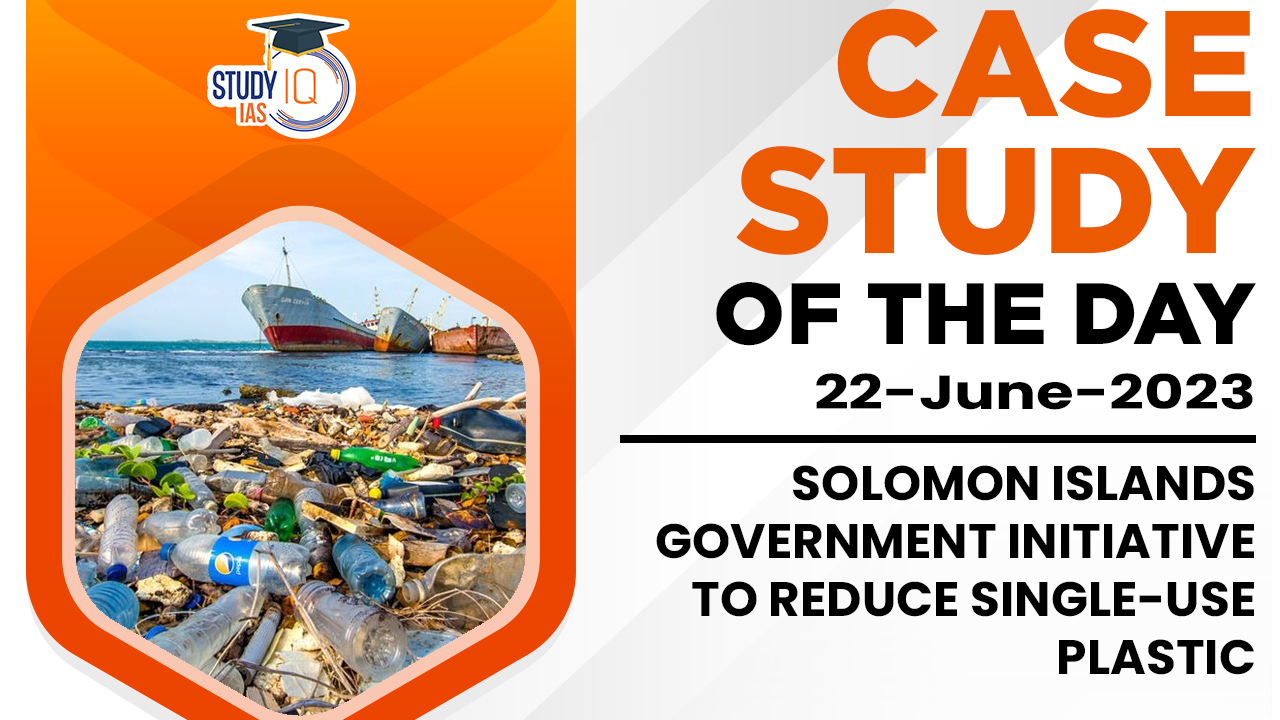Table of Contents
Introduction
The Solomon Islands is heavily reliant on plastic packaging and single-use plastics, including plastic bags, bottles, and food containers. The improper disposal and management of these items have resulted in significant environmental degradation, including plastic pollution in waterways and marine ecosystems. The government recognized the need for urgent action to preserve the natural environment, protect public health, and promote sustainable practices.
Objectives
The primary objective of the Solomon Islands government initiative was to reduce the use of single-use plastics by implementing a comprehensive strategy that targeted various sectors and stakeholders. The specific goals included:
- Raising awareness about the environmental impact of single-use plastics.
- Encouraging behavioural change among consumers, businesses, and government entities.
- Promoting sustainable alternatives and practices.
- Strengthening waste management infrastructure and systems.
Key Strategies and Implementation
The Solomon Islands government employed several strategies to achieve its objectives:
- Education and Awareness: The initiative began with extensive public awareness campaigns to educate citizens about the negative impact of single-use plastics on the environment. These campaigns utilized various channels, including mass media, social media, community events, and school programs, to reach a wide audience.
- Policy and Regulations: The government introduced legislation and regulations to control and restrict the production, importation, sale, and use of single-use plastics. This included imposing levies or bans on specific plastic items, such as plastic bags or straws.
- Collaboration with Businesses: The government partnered with local businesses, retailers, and manufacturers to promote sustainable packaging alternatives and encourage the adoption of eco-friendly practices. Incentives, such as tax breaks or grants, were provided to businesses that implemented environmentally responsible measures.
- Infrastructure Development: The government invested in waste management infrastructure, including recycling facilities and waste collection systems. This aimed to improve waste management practices and provide sustainable disposal options for plastic waste.
Challenges Faced
Implementing initiatives to reduce single-use plastics posed several challenges for the Solomon Islands government:
- Limited Resources: The country faced financial constraints and limited resources, making it challenging to allocate sufficient funds for infrastructure development and awareness campaigns.
- Behavioral Change: Encouraging widespread behavioral change among citizens and businesses required sustained efforts and overcoming ingrained habits and cultural norms.
- Enforcement: Enforcing regulations and ensuring compliance with plastic reduction policies proved to be a significant challenge due to the country’s vast geography and limited enforcement capacity.
Outcomes and Impact
The Solomon Islands government’s initiative to reduce single-use plastics has shown promising outcomes:
- Increased Awareness: The awareness campaigns successfully educated citizens about the environmental impact of single-use plastics, resulting in greater consciousness about plastic waste.
- Reduction in Plastic Consumption: The policy interventions, such as levies and bans, led to a significant reduction in the use of targeted single-use plastic items across the country.
- Shift towards Sustainable Alternatives: Businesses and consumers have embraced sustainable alternatives, such as reusable bags, bottles, and containers, leading to a reduction in plastic waste generation.
- Improved Waste Management: The investment in waste management infrastructure has enhanced the capacity to handle plastic waste effectively and promote recycling practices.
Conclusion
The Solomon Islands government’s initiative to reduce single-use plastics showcases the importance of comprehensive strategies, collaboration, and public engagement in tackling plastic pollution. By raising awareness, implementing regulations, promoting sustainable alternatives, and investing in waste management infrastructure, the government has made significant progress in curbing plastic waste and promoting a more sustainable future for the island nation. However, continued efforts, monitoring, and stakeholder involvement will be essential to ensure the long-term success of this initiative and further mitigate the impact of plastic pollution in the Solomon Islands.


 National Technology Readiness Assessment...
National Technology Readiness Assessment...
 Justice Mission-2025: China’s Live-Fir...
Justice Mission-2025: China’s Live-Fir...
 Suryastra: First Made-in-India Long-Rang...
Suryastra: First Made-in-India Long-Rang...

























